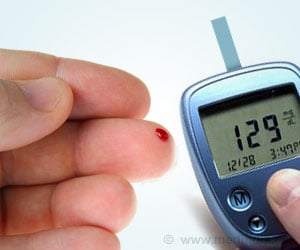Though the obesity trend cannot be reversed, here's hope that it's partner in crime —diabetes— might be thwarted.

"Diabetes is a major disease that is expected to affect more than 500 million people in the next two decades," said Radhika Muzumdar, M.D., study author from the Departments of Pediatrics and Medicine in the Divisions of Endocrinology and Geriatrics at Children's Hospital at Montefiore at the Albert Einstein College of Medicine in Bronx, New York. "Humanin could be a potential weapon in our arsenal in the fight against this global problem."
To make this discovery, Muzumdar and colleagues tested the effects of humanin on insulin secretion in rats and mice; in groups of cells called islets from the pancreas that contain beta cells; and in cultured mouse beta cell lines. In rats, administration of a humanin analog increased insulin levels in the blood in response to high blood glucose levels. The humanin analog increased insulin secretion in islets from both normal mice as well as islets from diabetic mice. In the next step, researchers confirmed that humanin increases insulin secretion in isolated beta cells. The work also demonstrated that this was closely linked to energy production from metabolism of glucose in beta cells. In addition, when the metabolism of glucose in beta cells was blocked, humanin did not increase insulin secretion. Finally, humanin levels naturally decline with age, suggesting that humanin or its analogues may be benefit patients with other conditions as well, such as stroke, heart disease and Alzheimer's.
"As global obesity remains at very high levels, so does diabetes," said Gerald Weissmann, M.D., Editor-in-Chief of The FASEB Journal. "This report identifies a promising compound that could have a dramatic effect on public health throughout the world."
Source-Eurekalert
 MEDINDIA
MEDINDIA




 Email
Email




